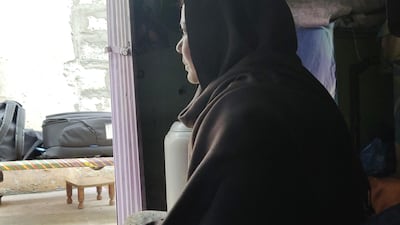A woman who spent 19 years in prison for a murder she did not commit is suing Pakistan for compensation and a change in the law to give redress to thousands locked up in miscarriages of justice.
Rani Bibi was wrongly convicted on flimsy evidence and left to languish in jail for years after incompetent officials failed to complete her appeal application.
In 2017, she was acquitted.
Lawyers say her case is typical of a badly flawed legal system that wrongly convicts thousands, then takes years to rectify mistakes, if they are spotted at all.
Victims of such errors have no access to legal redress or compensation, and often struggle to rebuild their lives if they are eventually freed.
A writ filed against the Punjab government in Lahore High Court this month asks judges to acknowledge Ms Bibi’s constitutional rights were breached and provide compensation. It also calls for a new law to tackle the problem.
“The idea is to have them first recognised as miscarriages of justice,” said Michelle Shahid, of the Foundation for Fundamental Rights, which is acting for Ms Bibi. “Presently there’s no conversation in Pakistan about how criminal justice cases go wrong, especially with wrongful conviction.”
A 2019 study by the same organisation found hundreds of innocent people could be stuck on death row in Pakistan after being sentenced to hang in miscarriages of justice.
The study of capital punishment cases found that when reviewed by the Supreme Court, 78 per cent of death sentences were overturned.
Convictions appeared to be rife with flimsy evidence and flawed verdicts. Lower courts often relied heavily on unreliable witness testimony, and corrupt police often tried to frame defendants. Delays in the congested court system meant the victims of such miscarriages spent years waiting to be cleared.
Pakistan has signed a 1966 United Nations treaty called the International Covenant on Civil and Political Rights, which should protect victims of miscarriages of justice. According to the covenant, anyone wrongly convicted “shall be compensated according to law”.
Ms Shahid said the scale of the problem may have deterred Pakistan’s legal system from acting sooner. “Maybe it’s out of fear and fear that it would incur a lot of cost,” she said.
Rani Bibi, from Pindi Bhattian, about 150 miles south of Islamabad, was only 16 when she was falsely accused alongside her father, brother and cousin of murdering her husband.
All four lodged an appeal as soon as they were convicted. Yet after 13 years without progress, the court then disposed of the appeals because Ms Bibi’s father had died in prison and her brother and cousin had served their sentences and been released.
Moreover it transpired that Ms Bibi, the only one of the four still inside, had not had her own appeal heard, because prison officials had failed to complete her application correctly.
It was only when her case was taken up by a crusading lawyer that a new appeal was heard and she was acquitted in 2017. The high court ruling at the time noted she “was left to anguish in the jail solely due to lacklustre attitude of the jail authorities” and “this court feels helpless in compensating her”.
Ms Shahid said lower court judges and police officers desperately needed training to improve the standard of trials and reduce the number of miscarriages of justice.
Ms Bibi has struggled to adapt to life outside prison. While she has remarried, both she and her husband are unemployed.

